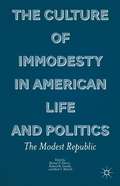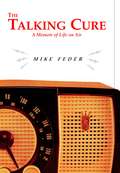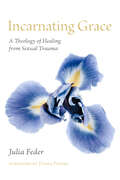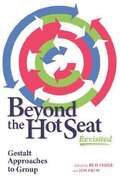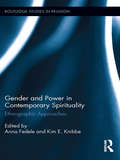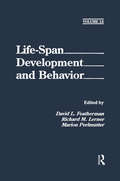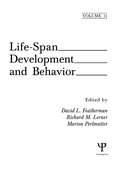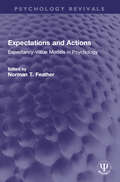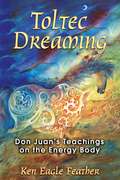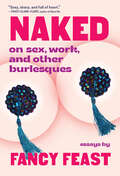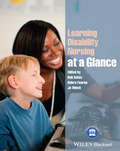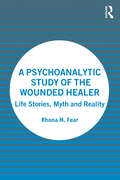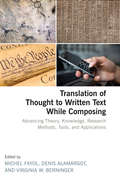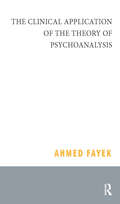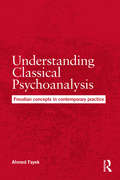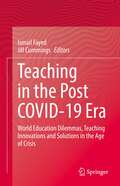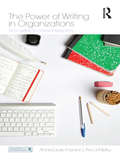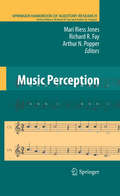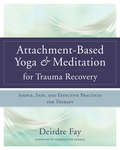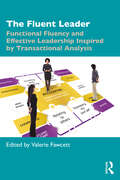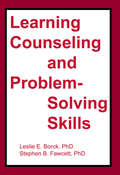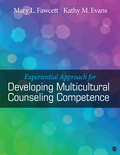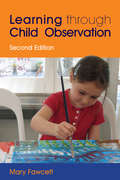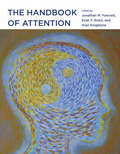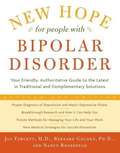- Table View
- List View
The Culture Of Immodesty In American Life And Politics
by Michael P. Federici Richard M. Gamble Mark T. MitchellBy identifying and illustrating aspects of American culture that are out of sync with the modest republicanism that gave rise to the United States in the late eighteenth century, the contributors to this volume expose the vulgarity and excess of American culture.
The Talking Cure: A Memoir of Life on Air
by Mike FederAs a kid growing up in Queens, Mike Feder identified with Scheherazade of The Thousand and One Nights: "The idea of someone having to tell a new tale every night to prevent their head getting chopped off seemed sadly familiar to me." Back then, the author's audience was his mentally ill mother, who used to stay in the house all day with the shades drawn, and then insist that her son tell her stories so that she might vicariously experience the world outside. Eventually she committed suicide, and Feder grew up to be a relentless, comic storyteller on the radio. The Talking Cure tells the story of his ridiculous jobs, first failed marriage, the string of psychiatrists, and the misery of reluctant fatherhood; throughout he maintains a kind of bizarre balancing act--hilariousness and deep seriousness, conventionality and strangeness. An ironist and a comic, Feder looks unflinchingly at his own foibles and frailties, enabling him to connect to other people's stories. The reader emerges from this book with a sense of forgiveness for the human condition, and awe at the mystery of human life. Deeply funny, and at the same time breathtakingly dark, this is a book to provoke, amuse and, in some strange way, reassure: God loves a challenge.
Incarnating Grace: A Theology of Healing from Sexual Trauma
by Julia FederPrioritizes survivors of abuse by reexamining Christian ideals about suffering and salvation More than half of women and almost one in three of men in the United States have experienced sexual violence at some time in their lives. Yet our Christian tradition has failed survivors of sexual violence, who have been taught to believe that traumatic suffering brings us closer to God. Incarnating Grace attempts to save our broken ways of talking about God’s grace by unearthing liberating resources buried in the Christian tradition.Christian ideas about salvation have historically contributed to sexual violence in our communities by reinforcing the idea that suffering is salvific. But a God worth worshiping does not want human beings to suffer. Drawing on the sixteenth-century Spanish mystic Teresa of Avila as well as contemporary political and feminist theologians, philosophers, and legal scholars, author and Associate Professor of theology Julia Feder offers an account of Christian salvation as mystical-political.Feder begins by describing the breadth of traumatic wounding and the shape of traumatic recovery, as articulated by psychologists. Since the fullness of post-traumatic healing requires reserves deeper than those which can be articulated by the secular field of psychology alone, the book then introduces the Spanish Carmelite Saint Teresa of Avila and her theological insights, which are most helpful for constructing a post-traumatic theology of healing. Arguing that God stands against violence and suffering, the book also examines the notion of “senseless suffering,” a technical term that comes from Edward Schillebeeckx, a Catholic twentieth-century Flemish priest and theologian. The suffering of sexual violence serves no higher purpose or greater human value and pushes against all ways of making sense of the world as good and orderly. In the following chapters, Feder turns to two Christian virtues that animate post-traumatic recovery, courage and hope, and explores how Christian hope can provide a language to empower courageous activity undertaken toward healing.Incarnating Grace opens a new dialogue about salvation and violence that does not allow evil to have the last word.
Beyond the Hot Seat Revisited: Gestalt Approaches to Group
by Bud Feder Jon FrewIn 1980, the original Beyond the Hot Seat was published and immediately recognized as a seminal work, providing gestalt group therapists with the first book exclusively devoted to that modality and offering them an expanded vision by linking gestalt principles with those of group dynamics, hence the title. Now, almost thirty years later, we are pleased to offer an updated and thoroughly revised version. In this new edition, will be found six of the most important chapters from the original, augmented by thirteen new chapters from a much more diverse and senior set of contributors. Whereas all the contributors from the original book were Americans, the new version has chapters from outstanding other practitioners from Sweden, England, Australia and New Zealand. Their writings in this book open up new territory and address fundamental issues in a more sophisticated and interrelated way. In the thirty years since the original was published, gestalt group therapists from around the world have had a good deal more connection and dialogue with one another -- sparked in part by the original version published in 1980. We believe that now, once again, gestalt group therapists will be greatly enriched by reading Beyond the Hot Seat Revisited -- which interestingly, is the first book since 1980 that is devoted exclusively to the modality, at least in English.
Gender and Power in Contemporary Spirituality: Ethnographic Approaches (Routledge Studies in Religion #26)
by Anna Fedele Kim E. KnibbeThis book explores the entanglements of gender and power in spiritual practices and analyzes strategies used by spiritual practitioners to attain what to social scientists might seem an impossible goal: creating spiritual communities without creating gendered hierarchies. What strategies do people within these networks use to attain gender equality and gendered empowerment? How do they try to protect and develop individual freedom? How do gender and power nevertheless play a role? The chapters in this book together and separately demonstrate that, in order to understand contemporary spirituality, the analytical lenses of gender and power are essential. Furthermore, they show that it is not possible to make a clear distinction between established religions and contemporary spirituality: the two sometimes overlap, and at other times spirituality distances itself from religion while reproducing some of its underlying interpretative frameworks. This book does not take the discourses of spiritual practitioners for granted, yet recognizes the reflexivity of spiritual practitioners and the reciprocal relationship between spirituality and disciplines such as anthropology. The ethnographic descriptions of lived spirituality included in this volume span a wide range of countries, from Portugal, Italy, and the Netherlands to Mexico and Israel.
Life-Span Development and Behavior: Volume 12 (Life-Span Development and Behavior Series #Vol. 12)
by David L. Featherman Richard M. Lerner Marion PerlmutterThe final volume in this significant series, this publication mirrors the broad scientific attention given to ideas and issues associated with the life-span perspective: constancy and change in human development; opportunities for and constraints on plasticity in structure and function across life; the potential for intervention across the entire life course (and thus for the creation of an applied developmental science); individual differences (diversity) in life paths, in contexts (or the ecology) of human development, and in changing relations between people and contexts; interconnections and discontinuities across age levels and developmental periods; and the importance of integrating biological, psychological, social, cultural, and historical levels of organization in order to understand human development.
Life-Span Development and Behavior: Volume 11 (Life-Span Development and Behavior Series #Vol. 12)
by David L. Featherman Richard M. Lerner Marion PerlmutterThis volume continues the tradition of the Life-Span Development Series, presenting overviews of research programs on a variety of developmental topics. Research and theory in life-span development have given increased attention to the issues of constancy and change in human development and to the opportunities for, and constraints on, plasticity in structure and function across life. Acknowledging the need for and existence of interconnection between age and developmental periods, it focuses on conditions for possibly discontinuous development that emerge at later periods. Contributors to this series are sensitive to the restrictive consequences of studying only specific age periods, such as old age, infancy, or adolescence. Each scholar attempts to relate the facts about one age group to similar facts about other age groups, and to move toward the study of transformation of characteristics and processes over the life span.
Expectations and Actions: Expectancy-Value Models in Psychology (Psychology Revivals)
by Norman T. FeatherOriginally published in 1982, this book examines the current status of expectancy-value models in psychology. The focus is upon cognitive models that relate action to the perceived attractiveness or aversiveness of expected consequences. A person’s behavior is seen to bear some relation to the expectations the person holds and the subjective value of the consequences that might occur following the action. Despite widespread interest in the expectancy-value (valence) approach at the time, there was no book that looked at its current status and discussed its strengths and its weaknesses, using contributions from some of the theorists who were involved in its original and subsequent development and from others who were influenced by it or had cause to examine the approach closely. This book was planned to meet this need. The chapters in this book relate to such areas as achievement motivation, attribution theory, information feedback, organizational psychology, the psychology of values and attitudes, and decision theory and in some cases they advance the expectancy-value approach further and, in other cases, point to some of its deficiencies.
Toltec Dreaming: Don Juan's Teachings on the Energy Body
by Ken Eagle FeatherA metaphysical instruction manual on the role of dreaming in the Toltec tradition • Describes the energy body, its modes of perception, and how it produces dreaming • Provides an outline of the dream gates showing how they correspond to the chakras • Includes detailed instructions for awakening dreaming potential and for exercising and expanding the dreaming body--what to expect and how to respond Toltec Dreaming explores the many aspects and levels of the dream-state, distinguishing ordinary dreaming from “dreaming awake,” a condition of heightened awareness through which the active dreamer ascends to the Dream of Transcendence. In this book, Ken Eagle Feather presents the history of dreaming’s place within the Toltec tradition and provides a practical how-to manual for achieving and maximizing dreaming potential. The Toltec Way superimposes on the waking world the subtle physics of the dream world in order to create a conscious dreaming body, often referred to as an “out-of-body experience,” that can allow anyone to use dreaming as a vehicle to higher consciousness. Once the dreaming energies are fully awakened, unbounded conscious perception can come alive, whether one is in the world of dreams or in daily life. The author shows how to communicate while in the dreaming body and indicates what one may encounter in the dream. He also identifies barriers to dreaming and includes instructions for detaching the dream body from the waking ego. Filled with techniques that stimulate dreaming and the development of the dreaming body, this book will guide practitioners along the Toltec Way of the Dream.
Naked: On Sex, Work, and Other Burlesques
by Fancy FeastIn Naked, a celebrated burlesque performer, sex educator, and social worker bares it all, with incisive and hilarious essays about selling, performing, and consuming desire. Fancy Feast draws back the curtain to reveal a world that most denizens of the daytime never see. Part exclusive backstage pass, part long-form literary striptease, these essays confront our culture&’s tightly held beliefs—like so many clutched pearls—about sex, communication, power, and the messiness of life on the margins of respectability. In &“Dildo Lady,&” Fancy recounts her time compensating for the failures of the American sex education system while working retail at a sex toy store. In &“Doing Yourself,&” Fancy tackles fatphobia and dating, self-love, and fantasies. In &“Yes/No/Maybe,&” Fancy brings the reader from sex parties to polyamorous relationships as she contrasts the undeniable sexiness of enthusiastic consent with the devastating effects of miscommunication and entitlement. Fancy Feast does this all as a fat woman who makes a living taking off her clothes—a triumphant punch-back at a culture that wants fat people to be self-hating or sexless. For fans of Lindy West and Melissa Febos, Naked is by turns splashy, vulnerable, and always powerful.
Learning Disability Nursing at a Glance
by Debra Fearns Bob Gates Jo WelchLearning Disability Nursing at a Glance is the perfectcompanion for study and revision from the publishers of themarket-leading at a Glance series. This visual, dynamic anduser-friendly resource addresses the key principles underpinningcontemporary learning disability nursing practice, relates them tokey clinical practice issues, and explores them in the context ofmaintaining health and well-being. Exploring the full spectrum of care, this textbook addresses theneeds of people with learning disabilities across the life span,from children through to adolescents and on to adults and olderpeople. Aimed at nursing, health and social care students, as wellas registered nurses, this is an invaluable resource for all thoselooking to consolidate and expand their knowledge, in order toprovide safe, effective and compassionate care to people withlearning disabilities.The perfect revision and consolidation textbookHighly visual colour presentation, with full colourillustrations throughoutIncludes expert contributions from learning disability academicstaff as well as cliniciansEmbraces both primary and secondary care perspectivesSupported by a companion website featuring case studies tofurther test your knowledgeAvailable in a range of digital formats- perfect for 'onthe go' study and revision
A Psychoanalytic Study of the Wounded Healer: Life Stories, Myth and Reality
by Rhona M. FearA Psychoanalytic Study of the Wounded Healer uses qualitative research to examine the popular myth that therapists are ‘wounded healers’. Rhona M. Fear presents the life stories of seven well-known psychoanalysts and psychotherapists, including Sigmund Freud, John Bowlby and Patrick Casement. Fear uses grounded theory to analyse her research and categorise her results, focusing closely on experiences including trauma in early life, attachment problems, mental disturbance and resistance to authority figures. The book identifies patterns and common themes in the life stories of these leading figures and explains what this research can tell us about the enduring myth of the wounded healer. Accessibly written, A Psychoanalytic Study of the Wounded Healer will be of great interest to psychoanalysts, psychotherapists, counsellors, and others in the helping professions.
Translation of Thought to Written Text While Composing: Advancing Theory, Knowledge, Research Methods, Tools, and Applications
by Michel Fayol Denis Alamargot Virginia W. BerningerTranslation of cognitive representations into written language is one of the most important processes in writing. This volume provides a long-awaited updated overview of the field. The contributors discuss each of the commonly used research methods for studying translation; theorize about the nature of the cognitive and language representations and cognitive/linguistic transformation mechanisms involved in translation during writing; and make the case that translation is a higher-order executive function that is fundamental to the writing process. The book also reviews the application of research to practice -- that is, the translation of the research findings in education and the work-world for individuals who interact with others using written language to communicate ideas. This volume provides a rich resource for student, theorists, and empirical researchers in cognitive psychology, linguistics, and education; and teachers and clinicians who can use the research in their work.
The Clinical Application of the Theory of Psychoanalysis
by Ahmed FayekPsychoanalysis - the one that we are familiar with - started in the clinical field. Freud and Breuer made some strides in the treatment of hysteria using hypnosis. They put together a theory of psychopathology based on two basic notions: conflicts between acceptable and unacceptable impulses (ideas, desires, fantasies, etc.), and the repression of the unacceptable impulses causing the formation of symptoms. Under hypnosis, the patients were given the chance to abreact the repressed, and the therapeutic endeavour was to allow catharsis, hence the origin of the term "catharsis theory" regarding this phase of hypnosis. However, the real breakthrough in psychoanalysis came to Freud in intuitions about matters from outside the field of pathology and the clinic, and without the help of hypnosis. They came from ordinary, even banal, phenomena like dreams, slips of the tongue, and jokes. In this book, the author covers the difference between a modified theory of catharsis and a theory of psychoanalysis, as well as the importance of psychodynamic diagnosis in the practice of psychoanalysis.
Understanding Classical Psychoanalysis: Freudian concepts in contemporary practice
by Ahmed FayekUnderstanding Classical Psychoanalysis gives a clear overview of the key tenets of classical Freudian psychoanalysis, and offers a guide to how these might be best understood and applied to contemporary psychoanalytic theory and practice. Covering such essential concepts as the Oedipal complex, narcissism and metapsychology, Fayek explores what Freud’s thinking has to offer psychoanalysts of all schools of thought today, and what key facets of his work can usefully be built on to develop future theory. The book will be of interest to psychoanalysts and psychoanalytic psychotherapists in practice and training, as well as teaching faculties and postgraduate students studying Freudian psychoanalysis.
Teaching in the Post COVID-19 Era: World Education Dilemmas, Teaching Innovations and Solutions in the Age of Crisis
by Ismail Fayed Jill CummingsThis handbook showcases extraordinary educational responses in exceptional times. The scholarly text discusses valuable innovations for teaching and learning in times of COVID-19 and beyond. It examines effective teaching models and methods, technology innovations and enhancements, strategies for engagement of learners, unique approaches to teacher education and leadership, and important mental health and counseling models and supports.The unique solutions here implement and adapt effective digital technologies to support learners and teachers in critical times – for example, to name but a few: Florida State University’s Innovation Hub and interdisciplinary project-based approach; remote synchronous delivery (RSD) and blended learning approaches used in Yorkville University’s Bachelor of Interior Design, General Studies, and Business programs; University of California’s strategies for making resources affordable to students; resilient online assessment measures recommended from Qatar University; strategies in teacher education from the University of Toronto/OISE to develop equity in the classroom; simulation use in health care education; gamification strategies; innovations in online second language learning and software for new Canadian immigrants and refugees; effective RSD and online delivery of directing and acting courses by the Toronto Film School, Canada; academic literacy teaching in Colombia; inventive international programs between Japan and Taiwan, Japan and the USA, and Italy and the USA; and, imaginative teaching and assessment methods developed for online Kindergarten – Post-Secondary learners and teachers.Authors share unique global perspectives from a network of educators and researchers from more than thirty locations, schools, and post-secondary institutions worldwide. Educators, administrators, policymakers, and instructional designers will draw insights and guidelines from this text to sustain education during and beyond the COVID-19 era.
The Power of Writing in Organizations: From Letters to Online Interactions (Organization and Management Series)
by Anne-Laure Fayard Anca MetiuThis book demonstrates the power of writing in informal and formal organizations in the past and the present. It shows how writing, despite long lasting criticisms that can be traced back to Plato, and in spite of its frequent definition as a mere recording medium is in fact a creative mode of communication that supports the expression of emotions, the developing knowledge, and the building of strong communities among faraway individuals. The first part of the book illustrates how this has been true historically. The focus on writing as a fundamental mode of communication – the other being speech or the oral mode – is still important in our technology-infused world, where writing seems to have been reduced to short cryptic text messages or tweets. Precisely because of their heavy reliance on technology, current practices are in need of a deeper understanding that focus on deep as opposed to surface features and unveil the four essential mechanisms – objectification, reflecting, specifying, and addressing – that give writing its creative powers. In the second part of the book, we use contemporary case studies and interviews to illustrate how shifting our focus from the media to the mode of communication and focusing on the mechanisms of writing allows us to go beyond current debates about the capabilities of various communication media and to understand better today’s communicative practices. This book is an attempt to unveil the powers of writing as well as to highlight the implications for organizations of the potential loss of these powers in today’s world where writing-based distributed collaborations, interpersonal relationships, and online communities are key sources of innovation and support for individuals and organizations.
Music Perception
by Richard R. Fay Arthur N. Popper Mari Riess JonesThe increasing prevalence of musical stimulation in our everyday environment makes studies of musical listening, comprehension and memory important. Music has simply become a pervasive aspect of the experienced environment for most of us; along with enhanced levels of machine sounds, musical sound sources are contributing to a virtual transformation of contemporary soundscapes occurring in many industrial countries. In spite of such trends, arguably the mainstream research in psychology and related fields has been slow to devote concentrated attention to this phenomenon and what it might mean. As a result, with respect to more established fields of research (e.g., visual perception, speech perception, attention and memory etc.), less is known about how people perceive and respond to complex, non-random, acoustic signals found in musical events. Although these topics reside in the domain of music research, this field is a relatively new one, with a history that dates back only about 25 years. Nevertheless, it is now a vibrant and rapidly growing field that draws from multiple disciplines (psychology, psychoacoustics, computer science, music theory, and so forth) to seek answers to questions about how we listen to musical events in our world. It tackles questions about pitch perception in complex patterns, about the role of tonal schemes as well as effects of metrical and rhythmic schemes on musical listening behaviors. It also examines abilities of children and adults to perceive and comprehend dynamic sound patterns. Emotional responses to music are also studied; and overarching all of this are exciting new neuroscience findings concerned with neural responses to musical events. Music Perceptionintroduces its audience to these and related basic issues concerned with listening to music. It also illustrates how knowledge about music perception may ultimately lead to a broader understanding of conventional concepts regarding perception, attention and memory.
Attachment-Based Yoga & Meditation for Trauma Recovery: Simple, Safe, and Effective Practices for Therapy
by Deirdre Fay Christopher GermerA practical but far-reaching look at a variety of mind-body techniques for working with trauma clients. This book offers an unprecedented, attachment-informed translation of yogic philosophy to body-based trauma treatment. The result is both erudite and accessible, emphasizing ready-to-implement skills and approaches that are as groundbreaking as they are effective. Organized around key trauma issues and symptoms, this book offers clinicians a practical but far-reaching look at mind-body skills and techniques for helping trauma clients access their individual wisdom, develop secure internal attachment, and find the path home to the Self.
The Fluent Leader: Functional Fluency and Effective Leadership Inspired By Transactional Analysis
by Valerie FawcettIn this insightful and comprehensive volume, leaders and managers can explore how they can use their power and choice of behavioural options more effectively to develop a positive and healthy working environment where people and the organization can succeed. Based on the Functional Fluency model as it was developed by Dr Susannah Temple, this book details the art and skill of interpersonal effectiveness, describing the behaviours that enable human beings to get along well together and to flourish and thrive. Fluent leaders make positive and flexible responses which help things turn out well, instead of repeating old automatic reactions that sometimes make things worse. By inspiring and motivating others, they manage and lead constructively, saving time, energy, and stress. Further, becoming functionally fluent will improve their problem-solving, decision-making, and communication skills, enabling them to cultivate successful relationships. Through engaging case studies and opportunities for personal reflection, The Fluent Leader addresses situations leaders face as managers, team leaders, senior executives, and change agents. The Fluent Leader guides leaders and managers, at all levels in any kind of organization, in how to use the most effective behaviours, and how to change ineffective behaviours, which are draining them or holding them back.
Learning Counseling and Problem-Solving Skills
by Stephen B Fawcett Leslie Borck-JamesonAn excellent tool for teaching counseling and problem-solving skills, this instructive volume focuses on the how-tos of developing a good client-helper relationship.
Experiential Approach for Developing Multicultural Counseling Competence
by Mary L. Fawcett Dr Kathy M EvansExperiential Approach for Developing Multicultural Counseling Competence by Mary L. Fawcett and Kathy M. Evans is an ideal companion text for students preparing for a career in counseling or mental health. Mental health workers-in-training need to learn to work effectively with clients from diverse backgrounds, and this text helps them develop these key skills by providing a ready-made resource of multicultural and diversity activities that instructors can assign to enhance student learning in class. It is applicable to all of the core courses in the counseling curriculum and it is developmentally designed to help students build multicultural and diversity competencies from the beginning level to an advanced level.
Learning Through Child Observation: Second Edition
by Mary FawcettThis fully-updated second edition of Learning Through Child Observation is a handbook for professionals working in, or students preparing to work in, children's services. This accessible text examines the value of observation, its use in assessment and the practical aspects and methods of observational study. The author focuses on the importance of fully recognising the child's developmental and emotional state when intervening, and the need to see children `holistically' and as unique individuals within the wider context of the family and community. New chapters include Views of Children and Childhood, which draws on European educational and sociological perspectives and highlights the contrasting views of children, and The 'Hundred Languages of Children', which considers the place of creative engagement and multiple forms of expression by children. With new material and updated chapters, this second edition of a popular text will appeal to students and professionals in all children's services, whether in pre-school, schools, social care, mental health or health settings.
The Handbook of Attention (The\mit Press Ser.)
by Jonathan M. FawcettAn authoritative overview of current research on human attention, emphasizing the relation between cognitive phenomena observed in the laboratory and in the real world. Laboratory research on human attention has often been conducted under conditions that bear little resemblance to the complexity of our everyday lives. Although this research has yielded interesting discoveries, few scholars have truly connected these findings to natural experiences. This book bridges the gap between “laboratory and life” by bringing together cutting-edge research using traditional methodologies with research that focuses on attention in everyday contexts. It offers definitive reviews by both established and rising research stars on foundational topics such as visual attention and cognitive control, underrepresented domains such as auditory and temporal attention, and emerging areas of investigation such as mind wandering and embodied attention. The contributors discuss a range of approaches and methodologies, including psychophysics, mental chronometry, stationary and mobile eye-tracking, and electrophysiological and functional brain imaging. Chapters on everyday attention consider such diverse activities as driving, shopping, reading, multitasking, and playing videogames. All chapters present their topics in the same overall format: historical context, current research, the possible integration of laboratory and real-world approaches, future directions, and key and outstanding issues. ContributorsRichard A. Abrams, Lewis Baker, Daphne Bavelier, Virginia Best, Adam B. Blake, Paul W. Burgess, Alan D. Castel, Karen Collins, Mike J. Dixon, Sidney K. D'Mello, Julia Föcker, Charles L. Folk, Tom Foulsham, Jonathan A. Fugelsang, Bradley S. Gibson, Matthias S. Gobel, Davood G. Gozli, Arthur C. Graesser, Peter A. Hancock, Kevin A. Harrigan, Simone G. Heideman, Cristy Ho, Roxane J. Itier, Gustav Kuhn, Michael F. Land, Mallorie Leinenger, Daniel Levin, Steven J. Luck, Gerald Matthews, Daniel Memmert, Stephen Monsell, Meeneley Nazarian, Anna C. Nobre, Andrew M. Olney, Kerri Pickel, Jay Pratt, Keith Rayner, Daniel C. Richardson, Evan F. Risko, Barbara Shinn-Cunningham, Vivian Siu, Jonathan Smallwood, Charles Spence, David Strayer, Pedro Sztybel, Benjamin W. Tatler, Eric T. Taylor, Jeff Templeton, Robert Teszka, Michel Wedel, Blaire J. Weidler, Lisa Wojtowicz, Jeremy M. Wolfe, Geoffrey F. Woodman
New Hope for People with Bipolar Disorder: Your Friendly, Authoritative Guide to the Latest in Traditional and Complementary Solutions
by Jan Fawcett Bernard Golden Nancy RosenfeldThe second edition of this groundbreaking guidebook provides up-to-date treatments and compassionate guidance for anyone affected by bipolar disorder—from the recently diagnosed to chronic sufferers and their families. You’ll receive tips from world-renowned experts—including coauthor Nancy Rosenfeld, herself a bipolar survivor—and learn about vital new options and innovations in bipolar treatment and research, such as: •New precautions: why some patients can get worse rather than better when taking antidepressant medication •The inside story on atypical antipsychotic medications, antidepressants, and other medications that affect neurotransmitters •New genetic research, studies on serotonin, studies into childhood and adolescent bipolar disorder, and results of neuron imaging and neuropsychological testing •Advice on making instant, effective lifestyle changes, coping with stigma, and deciding whether or not—and how—to disclose your illness to others. •A guide to the many evolving forms of psychotherapy
